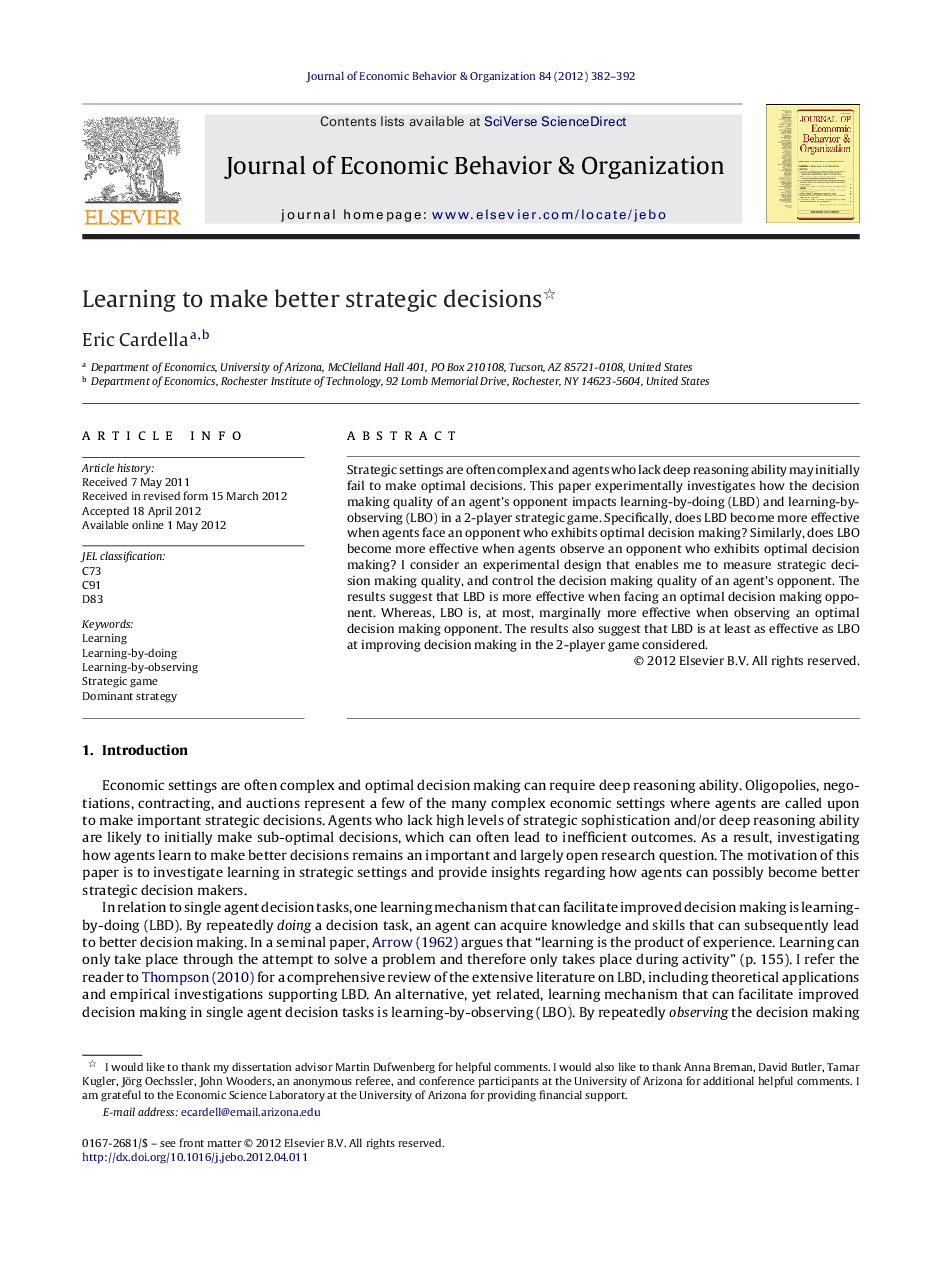| Article ID | Journal | Published Year | Pages | File Type |
|---|---|---|---|---|
| 883895 | Journal of Economic Behavior & Organization | 2012 | 11 Pages |
Strategic settings are often complex and agents who lack deep reasoning ability may initially fail to make optimal decisions. This paper experimentally investigates how the decision making quality of an agent's opponent impacts learning-by-doing (LBD) and learning-by-observing (LBO) in a 2-player strategic game. Specifically, does LBD become more effective when agents face an opponent who exhibits optimal decision making? Similarly, does LBO become more effective when agents observe an opponent who exhibits optimal decision making? I consider an experimental design that enables me to measure strategic decision making quality, and control the decision making quality of an agent's opponent. The results suggest that LBD is more effective when facing an optimal decision making opponent. Whereas, LBO is, at most, marginally more effective when observing an optimal decision making opponent. The results also suggest that LBD is at least as effective as LBO at improving decision making in the 2-player game considered.
► I experimentally investigate learning in a strategic game. ► I test if learning by doing (LBD) is affected by the decisions of one's opponent. ► I test if learning by observing (LBO) is affected by the decisions of one's opponent. ► I compare the effectiveness of LBD and LBO. ► LBD is affected by the decision quality of one's opponent, and LBD and LBO are comparably effective.
